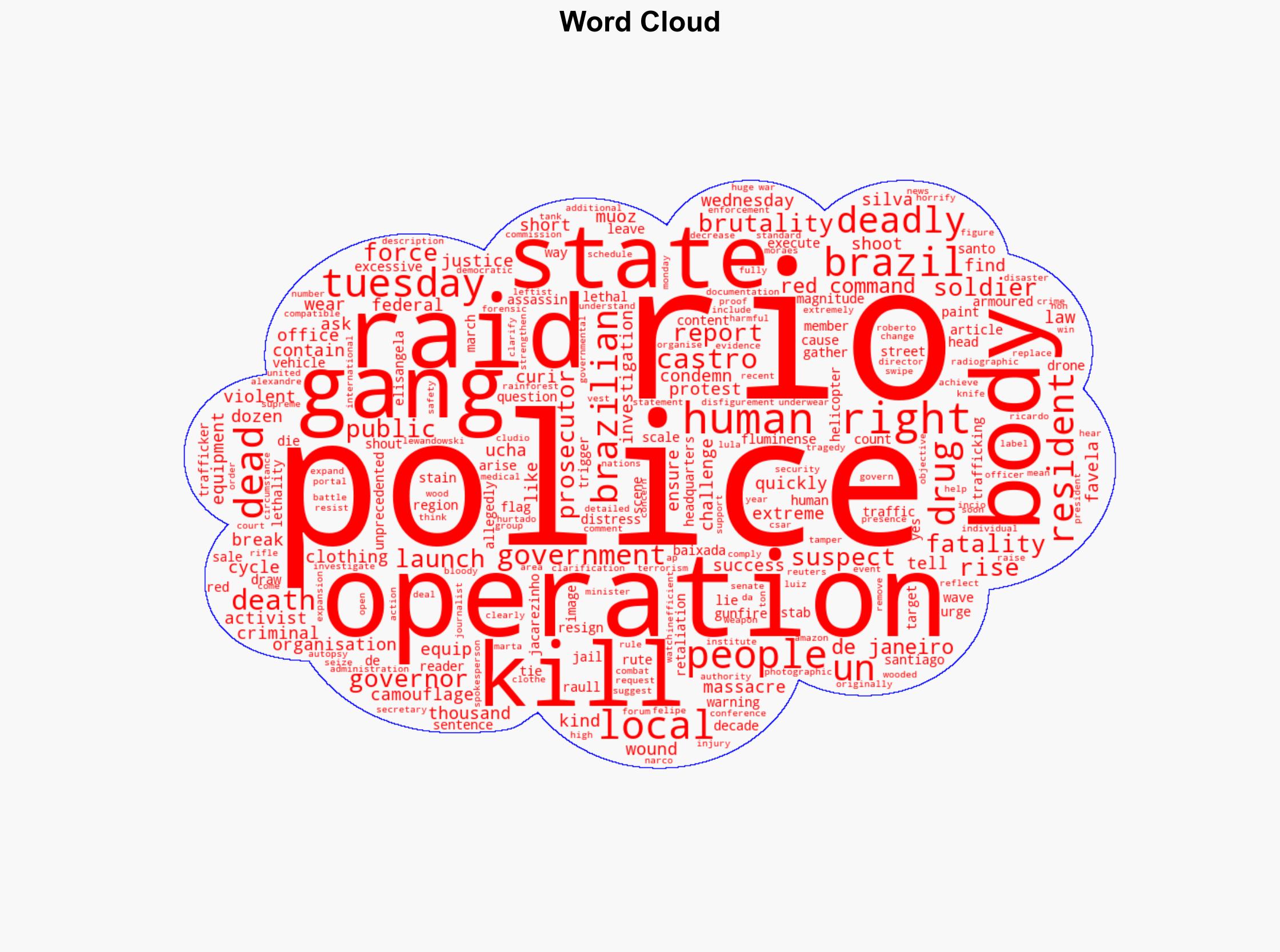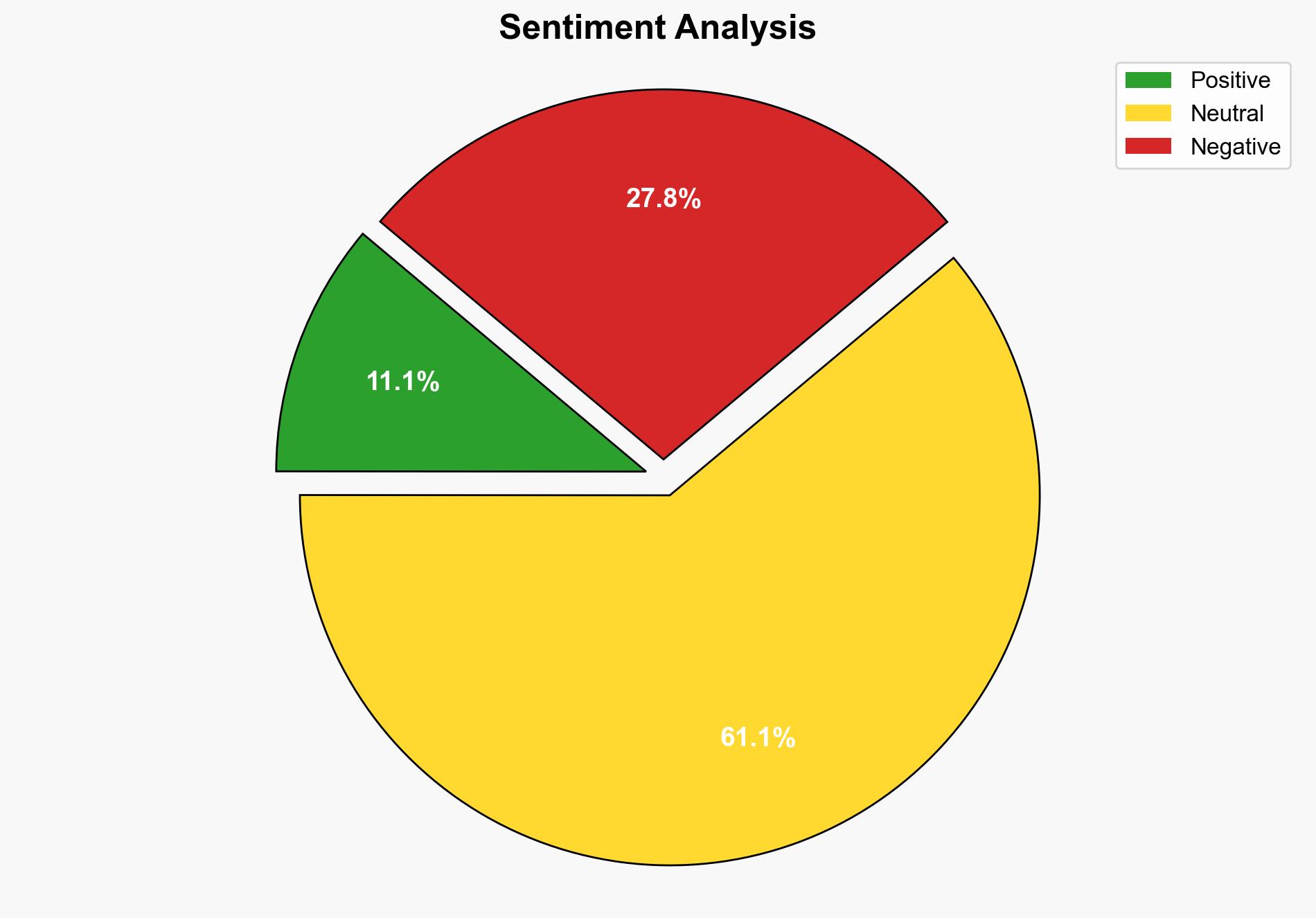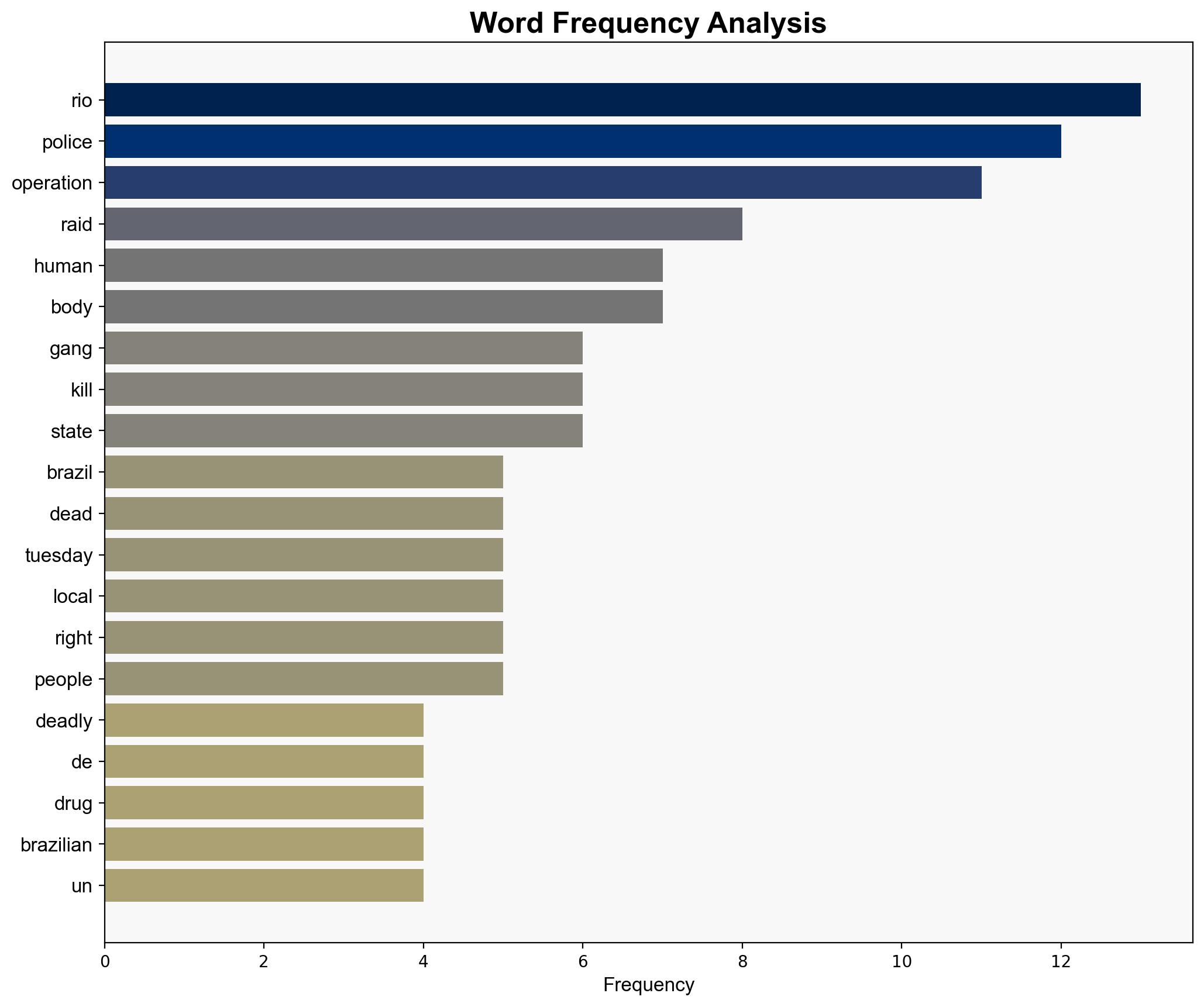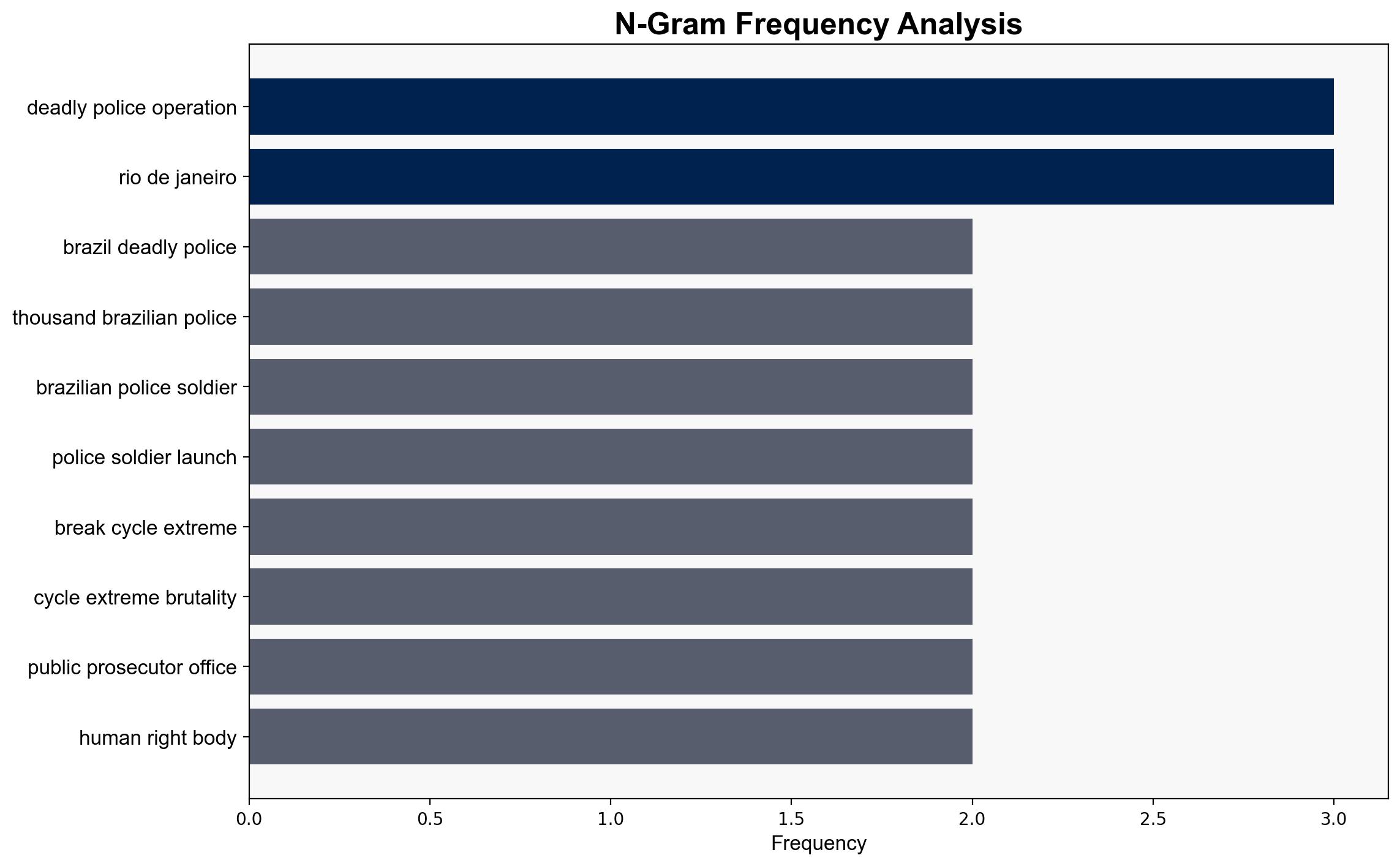Rio de Janeiro drug raid leaves at least 120 dead – ABC News (AU)
Published on: 2025-10-30
Intelligence Report: Rio de Janeiro drug raid leaves at least 120 dead – ABC News (AU)
1. BLUF (Bottom Line Up Front)
The most supported hypothesis is that the Rio de Janeiro drug raid was a result of a strategic decision by state authorities to assert control over drug trafficking networks, despite the high human cost. Confidence level: Moderate. Recommended action: Initiate an independent investigation to assess the proportionality and legality of the operation, and engage in dialogue with human rights organizations to address concerns.
2. Competing Hypotheses
1. **Hypothesis A**: The raid was a calculated law enforcement operation aimed at dismantling a major drug trafficking network, with the high fatality count being an unintended consequence of intense resistance from gang members.
2. **Hypothesis B**: The operation was excessively forceful, possibly motivated by political objectives to demonstrate a tough stance on crime, with the high death toll reflecting a disregard for human rights and due process.
Using the Analysis of Competing Hypotheses (ACH) 2.0, Hypothesis A is slightly better supported due to the reported seizure of weapons and drugs, and the context of ongoing violent crime in the region. However, Hypothesis B gains traction from the high number of civilian casualties and international condemnation.
3. Key Assumptions and Red Flags
– **Assumptions**: It is assumed that the police had reliable intelligence justifying the scale of the operation. The belief that the operation was necessary to combat organized crime is central to Hypothesis A.
– **Red Flags**: The unusually high death toll and reports of summary executions raise concerns about potential human rights violations. The lack of transparency in casualty reporting and the political rhetoric surrounding the operation suggest possible bias.
– **Blind Spots**: Limited information on the decision-making process and operational planning details.
4. Implications and Strategic Risks
– **Patterns**: This operation may set a precedent for future law enforcement actions, potentially escalating violence in the region.
– **Cascading Threats**: Increased tension between law enforcement and communities could lead to further unrest and radicalization.
– **Geopolitical Dimensions**: International criticism may strain Brazil’s diplomatic relations and affect foreign aid or cooperation.
– **Psychological Impact**: The operation could erode public trust in law enforcement and government institutions.
5. Recommendations and Outlook
- **Mitigation**: Conduct a thorough, independent investigation into the raid to ensure accountability and restore public confidence.
- **Dialogue**: Engage with community leaders and human rights organizations to address grievances and prevent future violence.
- **Scenario Projections**:
– **Best Case**: Successful reform of police practices leads to improved security and community relations.
– **Worst Case**: Continued heavy-handed operations result in escalating violence and international isolation.
– **Most Likely**: Incremental policy adjustments with ongoing tension between law enforcement and communities.
6. Key Individuals and Entities
– Cláudio Castro
– Ricardo Lewandowski
– Alexandre de Moraes
– Raull Santiago
– Elisangela Silva Santo
– Rute Sale
– Felipe Curi
7. Thematic Tags
national security threats, human rights, law enforcement, regional stability




